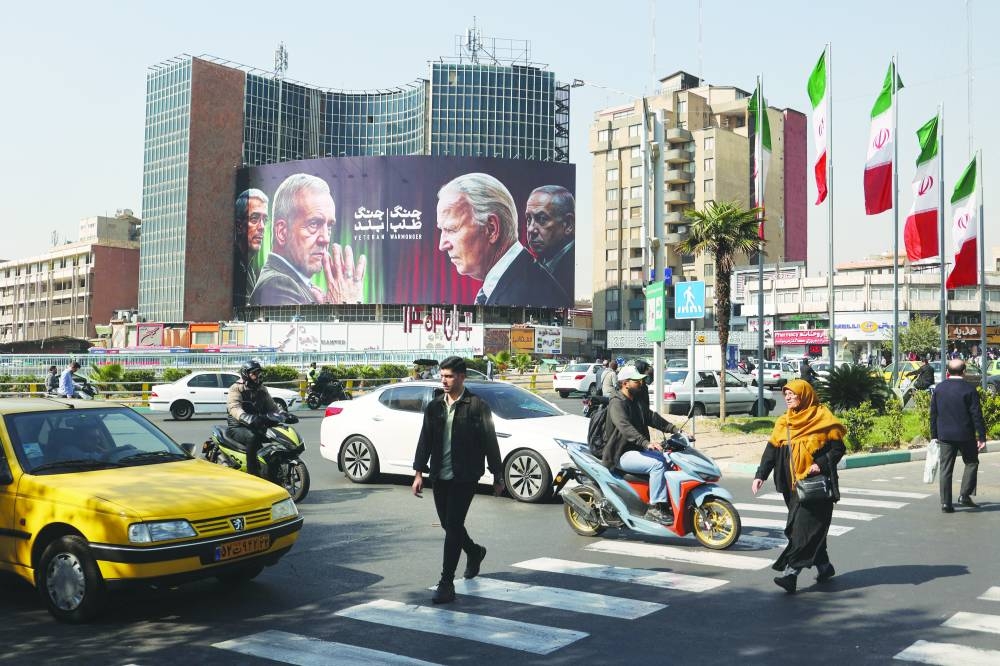Iran warned on Saturday it would defend itself after Israeli air strikes killed at least four soldiers and further stoked fears of a full-scale regional war in the Middle East.
Israel warned Iran would "pay a heavy price" if it responded to the strikes, and the US, Germany and Britain demanded Tehran not escalate the conflict further.
US President Joe Biden said he hoped "this is the end" after the pre-dawn Israeli strikes, noting that "it looks like they didn't hit anything other than military targets".
The European Union called for all parties to exercise utmost restraint to avoid an "uncontrollable escalation".
Other countries, including many of Iran's neighbours, condemned Israel's strikes and some, such as Russia, urged both sides to show restraint and avoid what Moscow dubbed a "catastrophic scenario".
Iran insisted it had the "right and the duty" to defend itself, while its Lebanese ally Hezbollah said it had already launched rocket salvos targeting five residential areas in northern Israel.
Confirming its own strikes after explosions and anti-aircraft fire echoed around Tehran, the Israeli military said it had hit Iranian missile factories and military facilities in several regions.
The "retaliatory strike has been completed and the mission was fulfilled", and Israeli aircraft "returned safely", a military spokesman said.
Israeli Prime Minister Benjamin Netanyahu said that Israel had chosen the targets in Iran based on its national interests, not according to what was dictated by the United States.
Iran confirmed Israel had targeted military sites around the capital and in other parts of the country, saying the raids caused "limited damage" but killed four soldiers.
Iran's military said that only radar systems were damaged in Israeli strikes and said it was prioritising a ceasefire in Gaza and Lebanon.
"Thanks to the timely performance of the country's air defences, the attacks caused limited damage and a few radar systems were damaged," the armed forces general staff said.
"A large number of missiles were intercepted and enemy aircraft were prevented from entering the country's airspace," the statement said.
Israeli aircraft were reduced to firing a "small number of long-range missiles with very light warheads from a distance", inside the US-patrolled airspace of neighbouring Iraq, it added.
The general staff held back from any threat of immediate retaliation.
"While reserving its legal and legitimate right to respond at the appropriate moment, Iran is prioritising the establishment of a lasting ceasefire in Gaza and Lebanon," it said.
Foreign Minister Abbas Araghchi said there were "no limits" to Iran's determination to defend itself.
Israel had vowed to retaliate after October 1, when Iran fired around 200 missiles in only the second ever direct attack against its arch-foe.

Iranians walk next to an anti-US and Israeli billboard on a street in Tehran.
